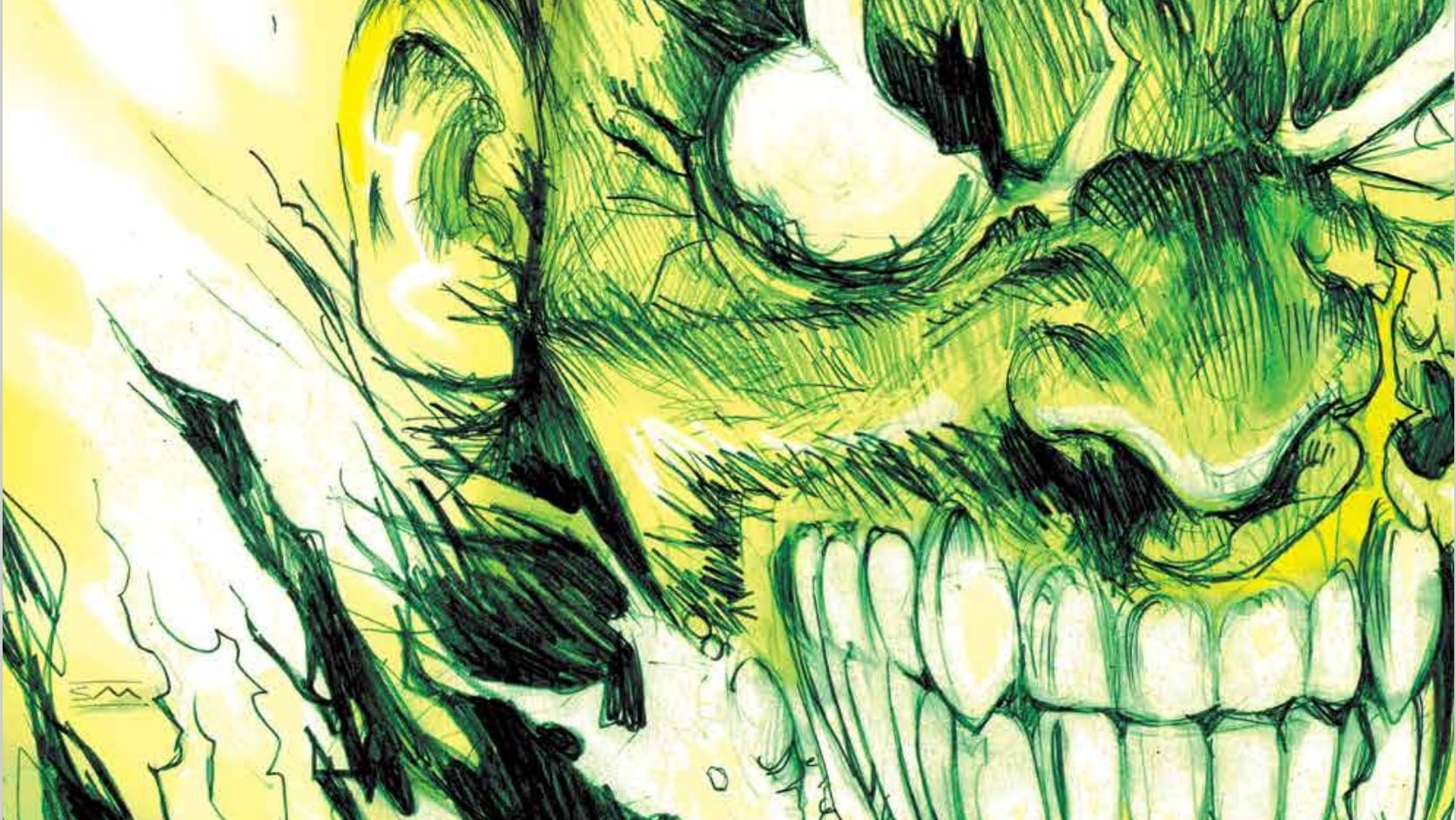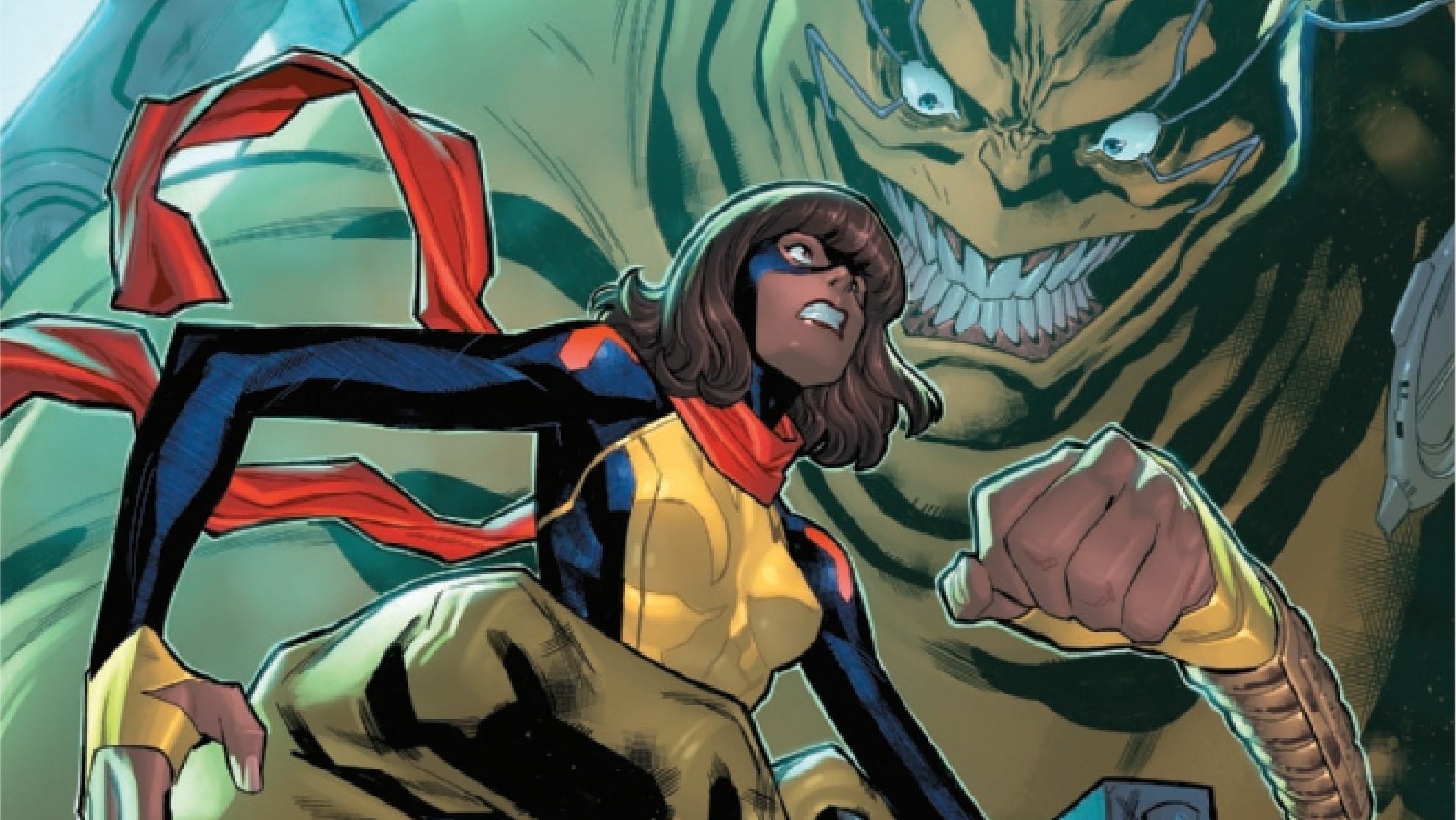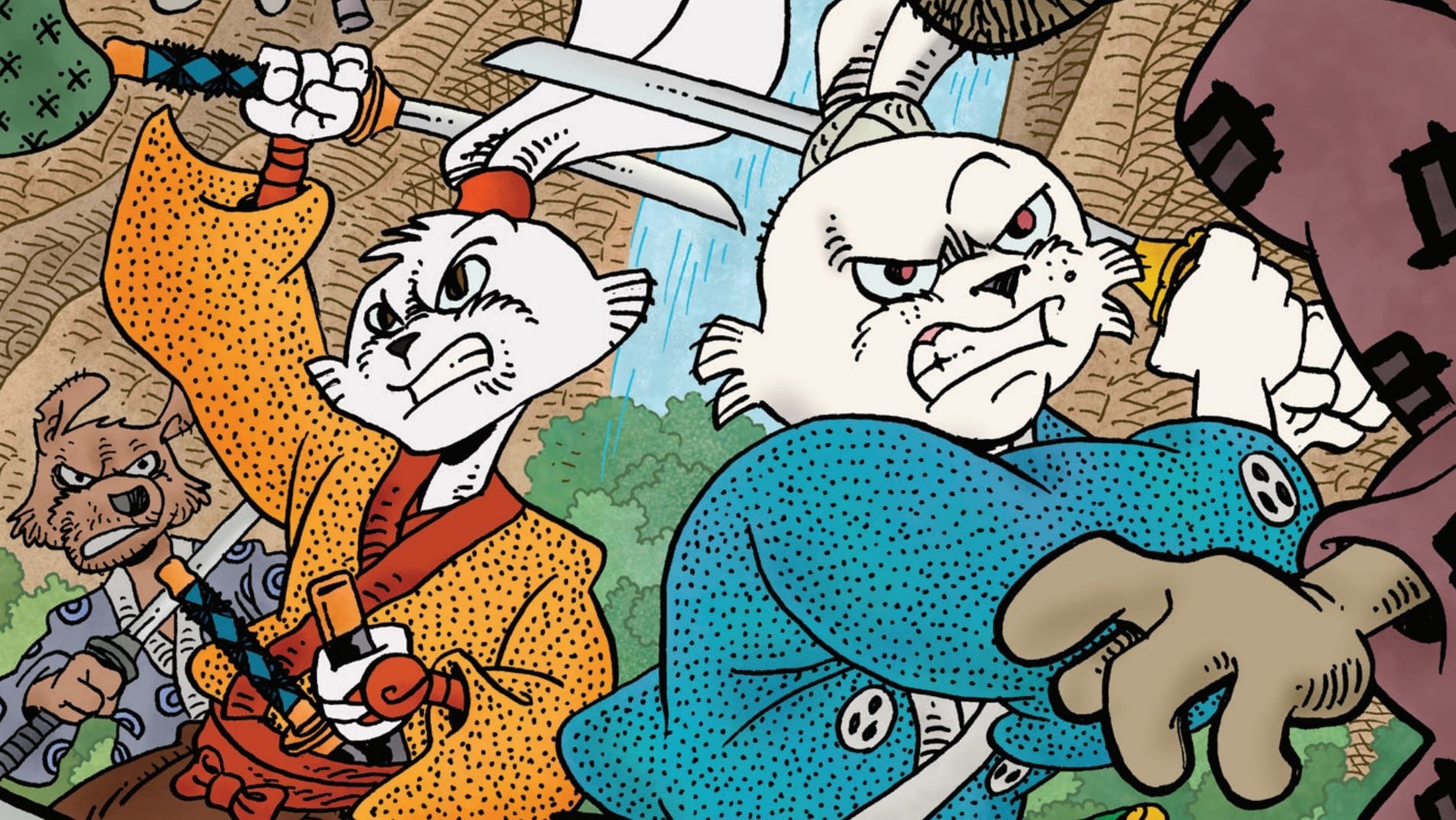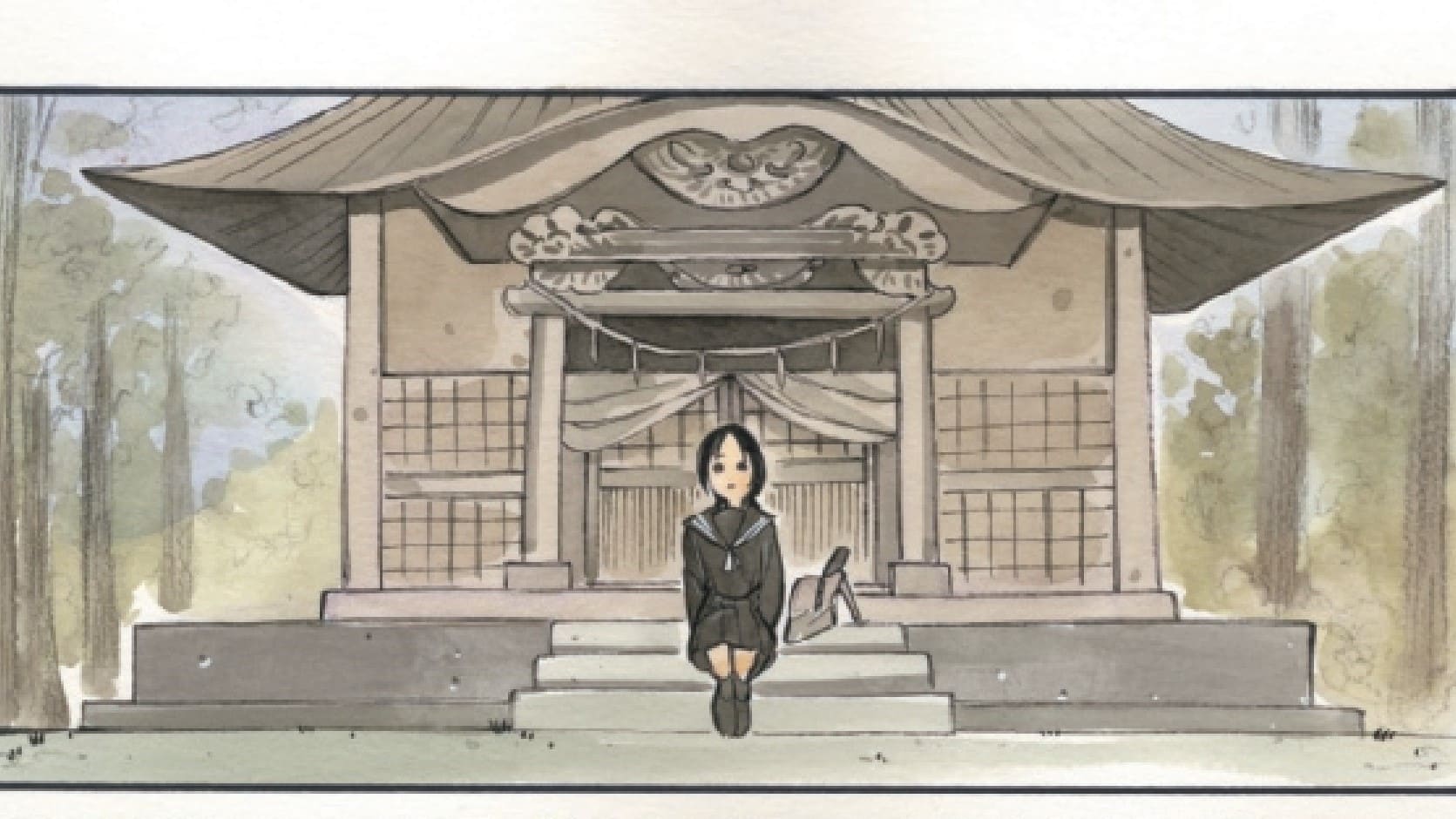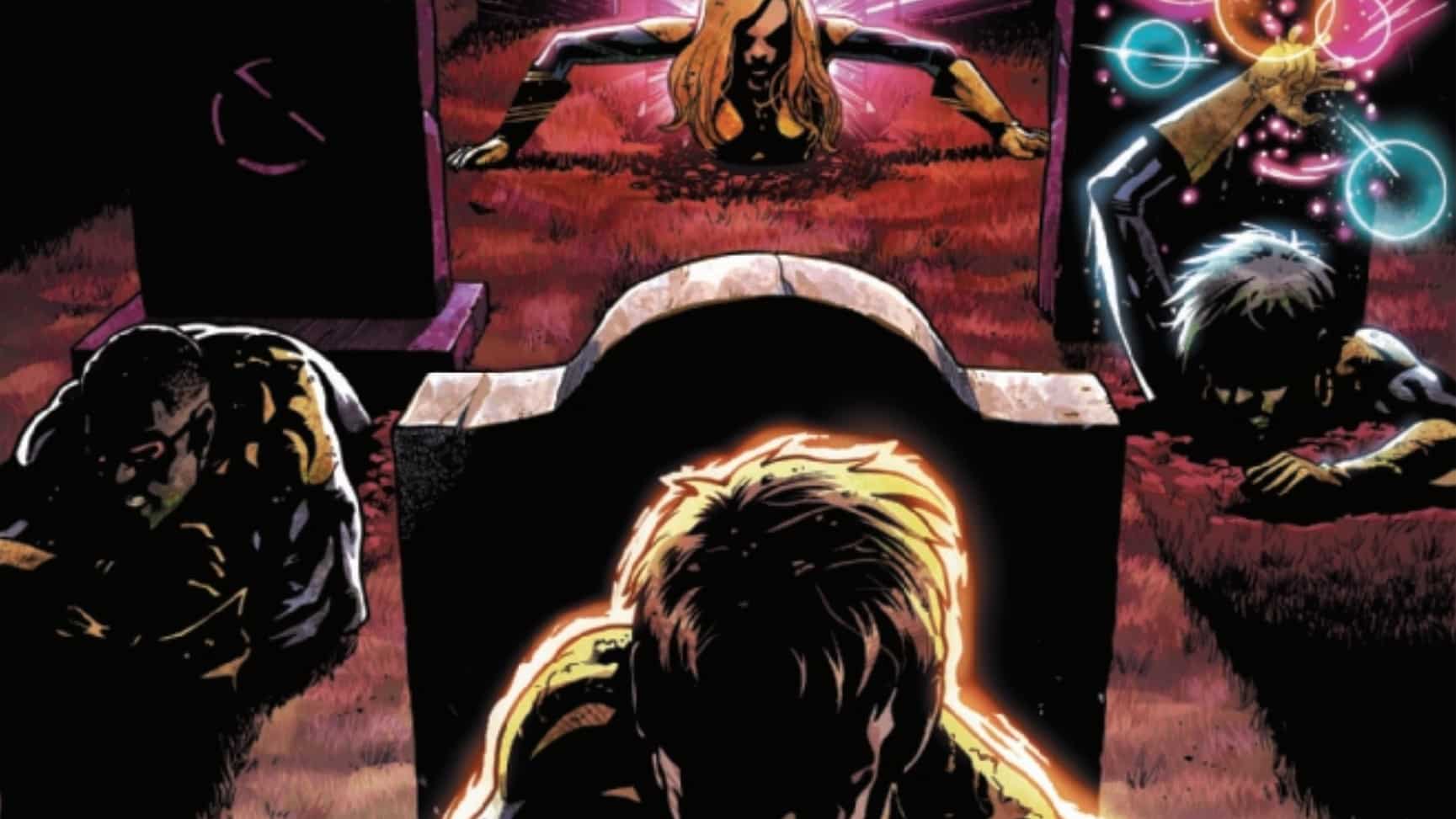It’s all led to this, an all-out battle between the Iron Star, President Goode and the inhuman monster known as 6Bill. Can Azra save her people, or will they become more collateral damage in this war of super powers? 20th Century Men #6 is written by Deniz Camp, drawn by Stipan Morian and lettered by Aditya Bidikar for Image Comics.
The old saying goes that history is written by the victors. Spend some time in the southern parts of America, and you’ll know that’s bullshit. The history of the American Civil War, as taught by the side that lost, ellides details. It claims the story was about taxes, about the desire for freedom. But it doesn’t tell you what they wanted to be free to do. What they didn’t want to be taxed for. It doesn’t talk about how much one can buy and sell a man who’s been beaten half to death.
But then, neither do the northern parts of white America.
Oh, sure, words like “slavery” appear in history books. They talk about slaves. But they talk about them like a resource. Like something that could be bargained for. Not someone made of flesh and bone. Just the abstract idea of a slave. The only slaves that are remembered by history are the ones who did brave, heroic things, who worked with the good, honest, God-fearing white men of the North to save their brothers and sisters from bondage.
Nobody gives a shit about a slave, a victim. They want a hero. Be that hero winner or loser, it doesn’t matter. They’re the hero of the story.
20th Century Men is a story about heroes. More than that, it’s a story about stories. Not in the sense of, say, Grant Morrison and their capitalist critique, approaching old fictions as kin to old tenement buildings torn down in the name of neoliberal economics. Nor is it in the sense of Neil Gaiman and his slightly twee view of how great and powerful stories are. Rather, 20th Century Men — in a move that highlights my limits — is a story about stories in the sense of Quentin Tarantino’s Inglourious Basterds.
Much like Tarantino’s text, 20th Century Men is a story that is simultaneously silently and loudly about the people who are overwritten by history. Our narrator, Azra, talks of the various people whose lives will be flattened by the history that is to come. She talks of the man she loved, a character so minor not one of us remembered he existed prior to this issue — if he existed at all. Of her siblings who have lived long, complicated, far too short lives. Of a people who are more than a graveyard of empires. And how their stories will all be consumed and flattened by the larger story. One of the death throes of two empires trying to determine which one gets to civilize the barbarians they trample on.
And yet, even empires aren’t immune to the cruel grasp of a larger story. Throughout the book, we have seen President Goode as this larger-than-life monster. A creature of pure malice and hatred who is devouring the world for the sake of his own egomania. But here, in this final issue, we see the most horrific thing of all: He’s a true believer.
Where previous issues presented him as a Reagan who lived up to the myth in all its horror, one whose mental faculties were still cogent and did terrible things in the name of the image of America, this final issue reveals him to be more kin to a different Cold Warrior: Margaret Thatcher. Like Thatcher, Goode is ultimately a true believer at heart. Goode believes in the American Dream as a power that can change people for the better. Something that can be used to civilize the people.
And we end his side of the story — one told to us as opposed to one he gets to tell, a rarity in Western fiction — with him being horrified to learn that no one else does. There is no grand symbolism to the American flag. It’s just a piece of cloth. It’s good marketing, like any other story. Like history. But beyond that, it doesn’t mean much. Some places sell it for less than two bucks.
It is tempting to feel sorry for Goode, to (if not forgive) forget his cruelties. His crimes. To see him much like Thatcher at the end of her time as prime minister: a shell of a human being with nowhere else to go.
But 20th Century Men does not do that. It presents the moment of revelation with distance. Morian draws Goode frequently out of focus in his final moments. Not the towering behemoth who dominated the final page of issue #1, but something small and inconsequential compared to the feast the Lockheed Martin and other company men are eating off of. He gets to be God. But God’s just another impotent idea that can be bought and sold for the right price. He doesn’t matter.
In the end, no one truly wins. If someone won the war, then there would be no more profits to be made from the war pigs. Making war just for fun. Treating people just like pawns. Wait ‘til their judgment day comes.
Yeah.
And while we wait, millions of innocent lives are slaughtered. For something as small and inconsequential as an imaginary points system. A game that people won’t stop playing because it’s too much fun. Jamming action figures together until they explode. These toys kill kids for someone else’s pleasure.
This, more than anything else, is what 20th Century Men is about. It’s about the children who shouldn’t be dead. Who shouldn’t even be injured for the sake of a short-term advantage. It’s about the war that shouldn’t have been fought. It’s about the people who are trampled on in the name of liberation.
I think of the short fiction of William Tenn. In particular, “The Liberation of Earth.” In this tale, two alien races battle for the right to liberate the Earth from one another. Each alien race taught the peoples of the Earth that the history they were taught was propaganda. The story ends with the far-off descendents of humanity living in a cruel, inhospitable world where every day is a fight to survive. In one of the most bitter jokes in the history of sci-fi, the short story ends thusly:
The same tale it is, and the same traditional ending it has as that I had from my father and his father before him. Suck air, grab clusters and hear the last holy observation of our history:
“Looking about us, we can say with pardonable pride that we have been about as thoroughly liberated as it is possible for a race and a planet to be!”
The fate of people in the eyes of someone else’s history is to be trampled upon. To be crushed and broken by their power and control. Their stories will be forgotten as nothing more than symbols. Their lives will be forgotten as nothing. Because historians rarely care about people who are unimportant. Who didn’t overthrow a dictator, found a land or sacrifice themselves bravely.
All history cares about is the battle for dominance between super powers.
Of course, there is one little detail I neglected to mention when invoking Tarantino’s vision of narrative: It’s an alternative past. By and large, the move toward an alternative past is one that projects a fantasy version of the past. A Disneyland steampunk vision of Victorian England where the cruelties of that age are swept aside in favor of twee pageantry and goggles. Even alternative pasts that engage with history often do so through the lens of “If we killed baby Hitler, the world would be a worse place than it is. Best to keep things the way they are.”
But Inglourious Basterds offers an alternative. Though criticized at the time for somehow being Holocaust denial because they killed Hitler, this critique misses the crucial detail that it’s a story where Hitler dies at the end. The history of the world is not set in stone in a story. History is already a story built on limited information. By considering the very possibility that history doesn’t have to be taken as a literal object, one can imagine other alternatives to the world as it exists.
So Deniz Camp, Stipan Morran and Aditya Bidikar do in the final pages of 20th Century Men. While not as grandiose or revelatory as Inglourious Basterds, the simplicity of the difference presented by 20th Century Men is all the more vital: What if they didn’t all die horrible, awful deaths? What if the people of Afghanistan lived? What if they escaped this epic tale of Supermen dominating the world? What if they could be bored? What if their kids could fly kites without having to fear a bomb dropping on their heads?
It’s such a simple question: What if there was a better life? What if it didn’t have to be this way? The blank page of possibility for a better life, for a better world, for anything to fill it, is palpable.
Indeed, that’s the key part: As with Tarantino’s revisionism, the future remains a blank page. We will never see what the world will look like with an even more emboldened America, having won World War II so thoroughly, they killed Hitler. Nor will we see the future these Afghan children will bring about. Whether they build a better one or a worse one or a world of equivalent quality doesn’t matter.
What matters is that they get to build one at all.
Because the world would be a better place with kids flying kites than it is with grown children playing soldier. In some regards, an inability to imagine anything better than what damns the majority of the cast. They can only see what is. The lies, the cruelty, the horror. All of this is what is, what happened. It was or it wasn’t.
We can imagine so many things. We can imagine horror and terror and kindness and joy. The comradery of soldiers and the beauty of nature. There are so many stories, so many histories …
And yet, we are a prisoner to this one.


